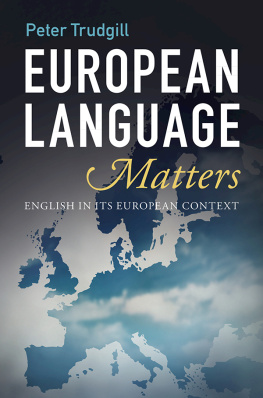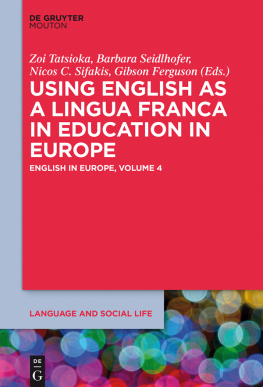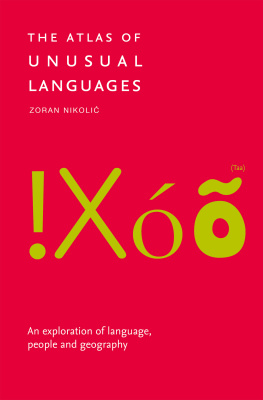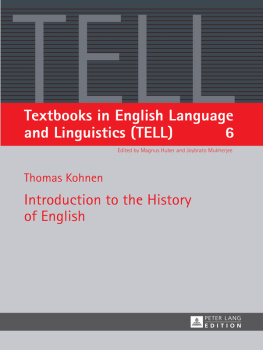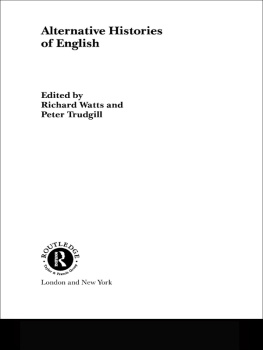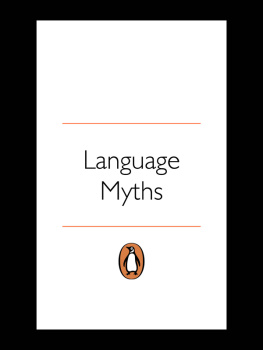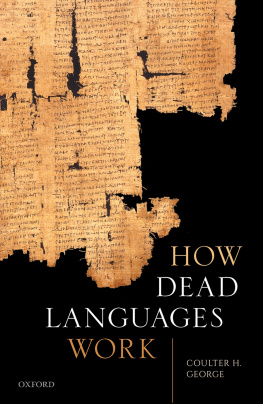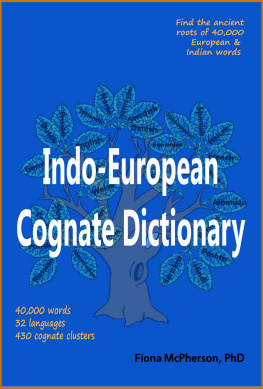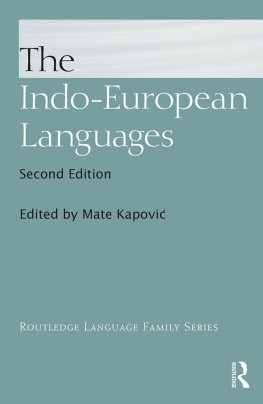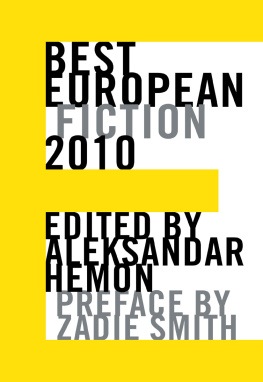Why do Greek lorries have Metaphors written on the side? Is it grammatically correct to say the best team won after a football match? What is the difference between manly , male , masculine and macho ? Bringing together Peter Trudgills highly popular columns for the New European , this fascinating collection explores how English has been influenced, both linguistically and culturally, by its neighbouring languages in Europe. English is very much a European language and Trudgill delves into the rich linguistic legacy that links all European languages. The bite-sized pieces are grouped together in thematically arranged sections, to allow the reader to dip in and out at will, and cover a wide range of topics, from the etymology of words, to illuminating pieces on grammar. Written in an engaging and lively style, and full of intriguing facts about language and languages in Europe, this book will appeal to both language specialists and to general readers with no prior experience.
Peter Trudgill is a theoretical dialectologist who is the author of Dialects in Contact (1986), Sociolinguistic Typology (2011) and Investigations in Sociohistorical Linguistics (2010). He has Honorary Doctorates from the Universities of Uppsala, East Anglia, La Trobe, British Colombia and Patras.
University Printing House, Cambridge CB2 8BS, United Kingdom
One Liberty Plaza, 20th Floor, New York, NY 10006, USA
477 Williamstown Road, Port Melbourne, VIC 3207, Australia
314321, 3rd Floor, Plot 3, Splendor Forum, Jasola District Centre, New Delhi 110025, India
103 Penang Road, #0506/07, Visioncrest Commercial, Singapore 238467
Cambridge University Press is part of the University of Cambridge.
It furthers the Universitys mission by disseminating knowledge in the pursuit of education, learning, and research at the highest international levels of excellence.
www.cambridge.org
Information on this title: www.cambridge.org/9781108832960
DOI: 10.1017/9781108966498
Peter Trudgill 2022
This publication is in copyright. Subject to statutory exception and to the provisions of relevant collective licensing agreements, no reproduction of any part may take place without the written permission of Cambridge University Press.
First published 2022
A catalogue record for this publication is available from the British Library.
Library of Congress Cataloging-in-Publication Data
Names: Trudgill, Peter, author.
Title: European language matters : English in its European context : columns from the New European / Peter Trudgill.
Other titles: New European.
Description: Cambridge, United Kingdom ; New York, NY : Cambridge University Press, 2022. | Includes bibliographical references and index.
Identifiers: LCCN 2021024827 (print) | LCCN 2021024828 (ebook) | ISBN 9781108832960 (hardback) | ISBN 9781108966498 (ebook)
Subjects: LCSH: English language Etymology. | Europe Languages Influence on English. | Languages in contact Europe. | BISAC: LANGUAGE ARTS & DISCIPLINES / Linguistics / Historical & Comparative | LANGUAGE ARTS & DISCIPLINES / Linguistics / Historical & Comparative
Classification: LCC PE1574 .T83 2021 (print) | LCC PE1574 (ebook) | DDC 422dc23
LC record available at https://lccn.loc.gov/2021024827
LC ebook record available at https://lccn.loc.gov/2021024828
ISBN 978-1-108-83296-0 Hardback
ISBN 978-1-108-96592-7 Paperback
Cambridge University Press has no responsibility for the persistence or accuracy of URLs for external or third-party internet websites referred to in this publication and does not guarantee that any content on such websites is, or will remain, accurate or appropriate.
Prologue
English is very much a European language, as the story of its origins shows. These origins lie rather long ago chronologically, but not particularly far away geographically. It was more than 1,500 years ago that boatloads of Germanic people started crossing the North Sea to the eastern shores of Britain. But they had not come from very far away. The Germanic people who arrived were mostly members of the tribal groupings we now refer to as the Jutes, Angles, Saxons and Frisians, who had resided mainly in coastal districts just across the North Sea from Britain.
The Jutes had originally come from the furthest north, from northern and central Jutland, now part of Denmark. The Angles lived in areas to the south of them in southern Jutland and Schleswig-Holstein. The Saxons were located to the west of them, along the North Sea coastal areas of northern Germany in the ElbeWeser region. And the Frisians came from Friesland, the area of coastline between the homeland of the Saxons and the mouth of the River Rhine in the modern Netherlands. The great estuaries of the English east coast such as the Humber, the Wash, the estuary of the Stour and the Orwell at Harwich and the Thames Estuary formed major entry points into Britain for many of these people.
Of these Germanic tribes, it was the Saxons who eventually gave their name to the areas of southern England known as Wessex, Sussex, Middlesex and Essex, the names referring respectively to the West, South, Middle and East Saxons. In these Saxon-dominated areas of England, we find a few toponyms which indicate rather clearly that most people in Wessex were not Angles, such as the settlement of Englefield, now in Berkshire, which meant the field of the Angles, and Englebourne, stream of the Angles, in Devon.
There were also Frisians around, as we can see from the Suffolk village names Friston and Freston, homestead of the Frisians, as well as from the name Frisby in Leicestershire. But most of non-Saxon England and south-eastern Scotland came to be dominated by Angles. In these Anglian zones, there are still to this day village names such as Saxham, home of the Saxons, near Bury St Edmunds, and Saxton, homestead of the Saxons, in North Yorkshire: these villages were obviously so called because there was something unusual about being a Saxon in Suffolk and Yorkshire.
Although Essex and Middlesex and Sussex were named after the Saxons, it was the Angles who had the honour of eventually giving their name to England, the land of the Angles, and to the English language. But why were they called Angles?
We first hear about them from the Roman historian Tacitus (c. ad 56120) in his work Germania , on the Germanic tribes. They seem to have come originally from the area of Germany which is known as Angeln, a peninsula located on the eastern coast of Schleswig-Holstein, on the Baltic Sea. Angeln lies between the Flensburg Firth, which today forms part of the border between Denmark and Germany, and the Schlei Inlet, which leads from the Baltic Sea to the town of Schleswig. Almost everybody from the Angeln area seems to have emigrated to Britain in the fifth century ad .
There are different theories about the origin of the name Angeln . It could be derived from the word which has come down into modern German as eng , narrow, referring perhaps to the narrow waters of the Schlei Inlet. Or it could be related to angle bend, corner, or to angling as in fishing: angle in the fishing sense originally referred to the bent or angled implement fishermen use for catching fish on a line. It would be rather amusing to think that, ultimately, the name of our now world-dominating language was derived from a simple word meaning fish-hook.

